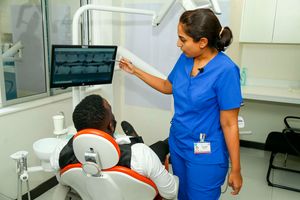MRI scans can detect prostate cancer missed by blood tests

Prostate Brachytherapy equipment.
What you need to know:
- By 2018, prostate cancer ranked second globally among the most diagnosed cancers in males attributing to 13.5 per cent of deaths.
- Data from the Global Cancer Observatory 2020 showed that in Kenya, prostate cancer recorded the most numbers of new cancer cases among men, a figure that stood at 3 412, which translates to 21.9 per cent of cases identified.
A new study has shown that MRI scans can be used to detect prostate cancer missed by the existing traditional blood tests.
According to the findings, the 10-minute MRI scan technology, which could be used to screen men for prostate cancer, could identify twice as many cases rather than the existing testing method to measure the levels of prostate specific antigen (PSA).
In the research conducted by University College London, University College London Hospital (UCLH) and King’s College London, more than 300 men aged between 50 to 75 years were screened with both MRI scans and PSA blood tests during. Of the 303 men who took part, 29 were diagnosed with severe cancer but 15 had a “low” PSA score, and under existing guidance they would not have been referred for further tests or treatment. Currently, only men with a PSA score over the benchmark of 3ng/ml are referred for further investigation, such as with a biopsy.
According to Prof Caroline Moore, consultant surgeon at UCLH and chief investigator of the study, the results of the study give an early indication that MRI could offer a more reliable method of detecting potentially serious cancers early. Prof Mike Richards, chairman of the UK National Screening Committee, said though the results were interesting, they would need to see high quality peer-reviewed research.
A study published in June 2020 by the African Journal of Health Sciences showed that the level of prostate cancer screening in Kenya like any other Sub-Sahara African country was terribly low. A community-based study carried out in a rural area reported only 2.4 per cent of the participants had been screened, while in Nairobi County, only 4.1 per cent of the respondents had ever been screened.
Socio- economic factors were linked to the low uptake of prostate cancer screening.
Prostate cancer screening remained a controversial issue due to the documented risk of overdiagnosis and harm associated with biopsy and treatment in developed countries. The cancer is mostly asymptomatic despite mortality rate highly dependent on early diagnosis and treatment, which might have been hindered by existing barriers.
By 2018, prostate cancer ranked second globally among the most diagnosed cancers in males attributing to 13.5 per cent of deaths. Data from the Global Cancer Observatory 2020 showed that in Kenya, prostate cancer recorded the most numbers of new cancer cases among men, a figure that stood at 3 412, which translates to 21.9 per cent of cases identified.





